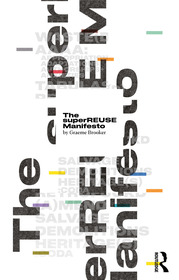
“Ye Shall Know Them by Their Fruits”
A Mixed Methods Study on Corruption, Competitiveness, and Christianity in Europe and the Americas
Sorozatcím: Contributions to Economics;
-
20% KEDVEZMÉNY?
- A kedvezmény csak az 'Értesítés a kedvenc témákról' hírlevelünk címzettjeinek rendeléseire érvényes.
- Kiadói listaár EUR 42.79
-
17 747 Ft (16 902 Ft + 5% áfa)
Az ár azért becsült, mert a rendelés pillanatában nem lehet pontosan tudni, hogy a beérkezéskor milyen lesz a forint árfolyama az adott termék eredeti devizájához képest. Ha a forint romlana, kissé többet, ha javulna, kissé kevesebbet kell majd fizetnie.
- Kedvezmény(ek) 20% (cc. 3 549 Ft off)
- Kedvezményes ár 14 198 Ft (13 522 Ft + 5% áfa)
Iratkozzon fel most és részesüljön kedvezőbb árainkból!
Feliratkozom
17 747 Ft

Beszerezhetőség
Megrendelésre a kiadó utánnyomja a könyvet. Rendelhető, de a szokásosnál kicsit lassabban érkezik meg.
Why don't you give exact delivery time?
A beszerzés időigényét az eddigi tapasztalatokra alapozva adjuk meg. Azért becsült, mert a terméket külföldről hozzuk be, így a kiadó kiszolgálásának pillanatnyi gyorsaságától is függ. A megadottnál gyorsabb és lassabb szállítás is elképzelhető, de mindent megteszünk, hogy Ön a lehető leghamarabb jusson hozzá a termékhez.
A termék adatai:
- Kiadás sorszáma 1st ed. 2022
- Kiadó Springer International Publishing
- Megjelenés dátuma 2021. december 12.
- Kötetek száma 1 pieces, Book
- ISBN 9783030785000
- Kötéstípus Puhakötés
- Lásd még 9783030784973
- Terjedelem407 oldal
- Méret 235x155 mm
- Súly 676 g
- Nyelv angol
- Illusztrációk XXXVI, 407 p. 38 illus., 36 illus. in color. Illustrations, black & white 220
Kategóriák
Hosszú leírás:
Why are historically Catholic countries and regions generally more corrupt and less competitive than historically Protestant ones? How has institutionalization of religion influenced the prosperity of countries in Europe and the Americas?
This open access book addresses these critical questions by elucidating the hegemonic and emancipatory religious factors leading to these dissimilarities between countries. The book features up-to-date mixed methods from interdisciplinary research contributing to existing studies in the sociology of religion field by demonstrating—for the first time—the effect of the mutually reinforcing configuration of multiple prosperity triggers (religion–politics–environment). It demonstrates the differences in the institutionalization of Roman Catholicism and Protestantism by applying quantitative and qualitative methods and by performing a qualitative comparative analysis (QCA) of 65 countries. The author also provides a comprehensive survey and results of empirical research on different theories of development, focusing on the influence of religion.
Több
Tartalomjegyzék:
Part I: Introductory Considerations and Research Setting.- 1. Introduction.- 2. Research Setting.- Part II: Conceptual Framework.- 3. The Outcome (Criterion Variables).- 4. Diagnosing Corruption and Prosperity in Europe and the Americas (A).- 5. Conditions (Predictor Variables): Theories Explaining Prosperity Differences (B), (C), (D), (E).- Part III: Theoretical Foundations.- 6. Corruption and Religion (A), (B), (1).- 7. Prosperity and Religion (A), (B), (1).- 8. Institutions, Corruption/Prosperity, and Religion (A), (B), (D), (1), (3), (6).- 9. Education, Religion, and Corruption/Prosperity (A), (B), (C), (1), (2).- 10. Culture, Religion, and Corruption/Prosperity (A), (B), (C), (1), (2).- 11. Language and Religion.- 12. Environment/Geography and Prosperity/Transparency (E), (4), (7).- Part IV: Research Paradigms, Methodology, and Research Design.- 13. Applied Research Paradigms.- 14. Methodology.- Part V: Empirical Results.- 15. Component 1 (Macro): Quantitative (Regression) Analysis.- 16. Component 2 (Meso): Qualitative Comparative Analysis (QCA).- Part VI: Component 3 (Micro).- 17. Case Selection Criteria, Methods, and Data Treatment.- 18. a) Switzerland: Extreme Positive Case Study (Worldwide).- 19. b) Uruguay: Extreme Positive Case Study (Latin America).- 20. c) Cuba: A Sui Generis Case Study (Communist proxy).- 21. d) Colombia: Extreme Negative Case Study.- 22. Summary Overview of the Four Case Studies.- Part VII: Discussion and Conclusions.- 23. Integrative Conclusions.- 24. Other Considerations.- 25. Concluding Remarks.
Több

Neurofeedback bei Kindern mit ADHS: Lässt sich die Konzentrationsfähigkeit bei Kindern mit ADHS durch Behandlungen mit ILF- Neurofeedback verbessern?
19 887 Ft
18 893 Ft

Richard Serra / Dirk Reinartz: Te Tuhirangi Contour
9 555 Ft
8 122 Ft








